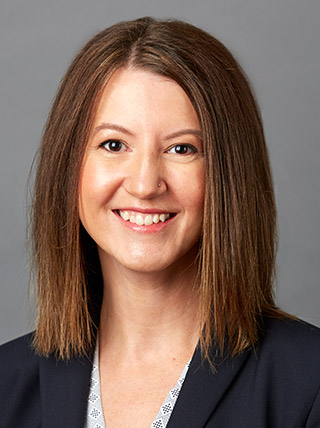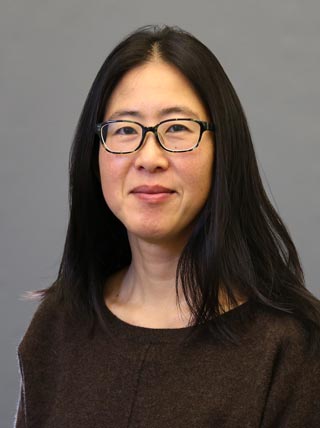KP Medical School Taps CHR Investigators as Research Faculty, Mentors
Stories - July 9, 2024

By Katie Essick, CHR Writer
 Bobbi Jo Yarborough, PsyD
Bobbi Jo Yarborough, PsyD Jennifer S. Lin, MD, MCR, FACP
Jennifer S. Lin, MD, MCR, FACP
When the Kaiser Permanente Bernard J. Tyson School of Medicine (KPSOM) welcomed its inaugural class four years ago, KP investigators from throughout the U.S. were invited to consider roles as research faculty members.
Six CHR researchers are among those who, to date, have answered the call from the Southern California school.
“I was really intrigued by KPSOM’s unique model: training physicians in Kaiser Permanente’s philosophy of integrated care, and emphasizing research and learning health systems,” said Senior Investigator Bobbi Jo Yarborough, PsyD.
“I’m also very interested in opportunities for my work to reach medical students during their training. A lot of what we know from recent research findings is never included in medical school training—for example, many current physicians had little to no exposure to addiction medicine in their training.”
Distinguished Investigator Jennifer Lin, MD, MCR, FACP, had similar reasons for saying yes. “I was interested in exposing students to a broader array of research, evidence-based health care, health care guidelines, and generally other career opportunities for them in the future,” she said. “When I was in medical school, I wished I had a better sense of the array of opportunities there were as a physician.”
In addition to Yarborough and Lin, those serving as assistant, associate or full professors are CHR’s Interim Director and Senior Director of Science Programs, Distinguished Investigator Stephen Fortmann, MD; Distinguished Investigator Richard Mularski, MD, MSHS, MCR; Senior Investigator Mark Schmidt, PhD, MPH; and Senior Investigator Carrie Patnode, PhD, MPH.
They are among more than 1,000 faculty members in the Pasadena-based school’s Department of Health Systems Science. While many are affiliated with KPSOM itself, others are investigators at regional Kaiser Permanente research centers in Northern California, Southern California, Washington, Georgia, and Colorado.
The large pool of scientific and clinical researchers is another reason Lin became involved. “I wanted to get plugged into a larger KP community of ‘academics,’ namely outside our region,” she explained.
Mentoring Students in Health Care Research
All KPSOM students must conduct research, and the school's affiliations with KP researchers offer them unprecedented opportunities to focus on areas of interest. The Department of Health Systems Science connects students with mentors; currently, 177 researchers are working with students as mentors or co-mentors.
“I am incredibly grateful for the contributions of the CHR Investigators who have joined our department and our school,” said Health Systems Science Chair Paul Chung, MD, MS. “The quality and diversity of research and mentoring at KPSOM has become one of its genuine strengths, and we’re eager to build a more vibrant academic community with each passing year.”
Lin, director of the KP Evidence-Based Practice Center (EPC), is the first investigator at CHR to work with a student, consulting on a study using KP data from several regions to examine the relationship between patient social needs and cervical cancer screening. In 2025, Lin hopes to introduce a student to the EPC’s systematic review process, while Senior Investigator Mark Schmidt will mentor his first student.
CHR investigators have also been involved with the KPSOM in other ways. Mularski served on several committees before KPSOM opened, and Lin taught an introductory course on systematic reviews during its inaugural year.
About the KP School of Medicine
The KPSOM, named after Bernard J. Tyson, the late Kaiser Permanente chairman and CEO, is committed to promoting diversity in medical education and the health profession, achieving health equity for all and eliminating health disparities wherever they exist. Tyson was a strong champion of creating a KP medical school.
In its commitment to equity, inclusion and diversity, KPSOM seeks to “draw students from all backgrounds, and create an environment in which they learn from each other and are comfortable with each other,” said Founding Dean Mark A. Schuster. Another striking feature: Tuition for all four years was waived for the first six classes.
One of the nation’s newest medical schools, KPSOM opened in July 2020. It is highly competitive, with more than 11,000 applications for about 50 openings per year. The first commencement ceremony was held in May 2024, and all graduating students were matched to residency programs.